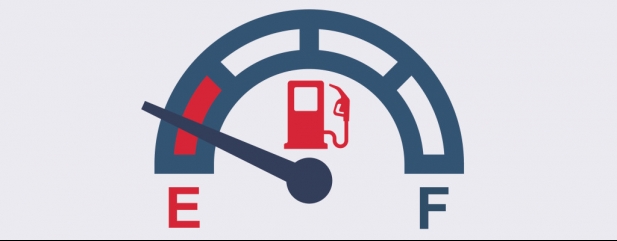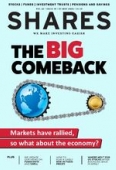Archived article
Please note that tax, investment, pension and ISA rules can change and the information and any views contained in this article may now be inaccurate.
Shell has opened the floodgates for dividend cuts

Oil producer Royal Dutch Shell (RDSB) was meant to be the company that never disappoints when it comes to dividends. Sadly its decision to slash its payment by two thirds means other stocks effectively now have free rein to do the same.
The drastic actions by companies to preserve cash have now seen 309 London-listed stocks either cut, suspend or delay dividends, including 41 in the FTSE 100. Further cuts are widely expected.
In addition to Shell, many other supposedly reliable dividend payers have thrown in the towel to various degrees such as retailer Next (NXT) and insurer Admiral (ADM), the latter having shelved its special dividend.
This is also bad news for a lot of investments funds as they could experience a much smaller stream of portfolio income from which to pay investors.
Approximately 160 retail funds and investment trusts in the UK have Shell as one of their top holdings.
One would hazard a guess that every single UK equity income fund will own more than one stock that has delivered bad news on the dividend front this year.
THE NEW NORMAL?
So is this a temporary or permanent phenomenon? ‘The UK has been renowned for having a generous dividend yield, partially driven by growth in income funds and more people being responsible for their pension funds. Unfortunately companies have been over-distributing,’ says Alan Custis, head of UK equities at Lazard Asset Management.
Companies may use the pandemic as an excuse to rebase their dividends so they are covered by a greater amount of earnings than historically. That implies lower yields going forward.
Any business using the Covid Corporate Financing Facility (CCFF) – where the Bank of England buys short-term debt from companies – is unlikely to return to paying dividends until they’ve repaid the debt.
That implies investors in InterContinental Hotels (IHG), Ferguson (FERG) and Rentokil (RTO) shouldn’t expect a return to dividends for some time as they are among the companies to have issued debt under the CCFF.
The financial sector could also come under renewed pressure if investors decide to sell out after widespread dividend suspensions. These are complex companies so why bother to own them if there are no dividends?
WHERE CAN YOU FIND DIVIDENDS?
Gervais Williams, head of equities at Premier Miton, suggests gold miners could be a more reliable place to source growing dividends. After all, many gold producers will be making decent profit margins at the current metal price.
Consumer goods companies like Unilever (ULVR) and Reckitt Benckiser (RB.) also look better placed than many to keep paying dividends, so do tobacco stocks.
In the broad healthcare and medical devices sector, a large number of London-listed stocks still intend to pay dividends including Convatec (CTEC), GlaxoSmithKline (GSK), Hikma Pharmaceuticals (HIK) and Smith & Nephew (SN.).
However, as we always say, no dividend is guaranteed and Shell’s actions have certainly shown that to be the case.
Important information:
These articles are provided by Shares magazine which is published by AJ Bell Media, a part of AJ Bell. Shares is not written by AJ Bell.
Shares is provided for your general information and use and is not a personal recommendation to invest. It is not intended to be relied upon by you in making or not making any investment decisions. The investments referred to in these articles will not be suitable for all investors. If in doubt please seek appropriate independent financial advice.
Investors acting on the information in these articles do so at their own risk and AJ Bell Media and its staff do not accept liability for losses suffered by investors as a result of their investment decisions.
Issue contents
Editor's View
Feature
First-time Investor
Great Ideas
Money Matters
News
- Exit charge lowered on Lifetime ISA as a temporary measure
- Companies will need to start quantifying Covid-19 impact
- Investors need to be prepared for terrible second quarter results
- Why these stocks have just hit all-time highs
- Orbis seeing ‘most exceptional discounts’ since the credit crunch
- Could we see a return of M&A due to the crisis?
- Berkshire Hathaway builds cash to record levels, sell airline stocks

 magazine
magazine








